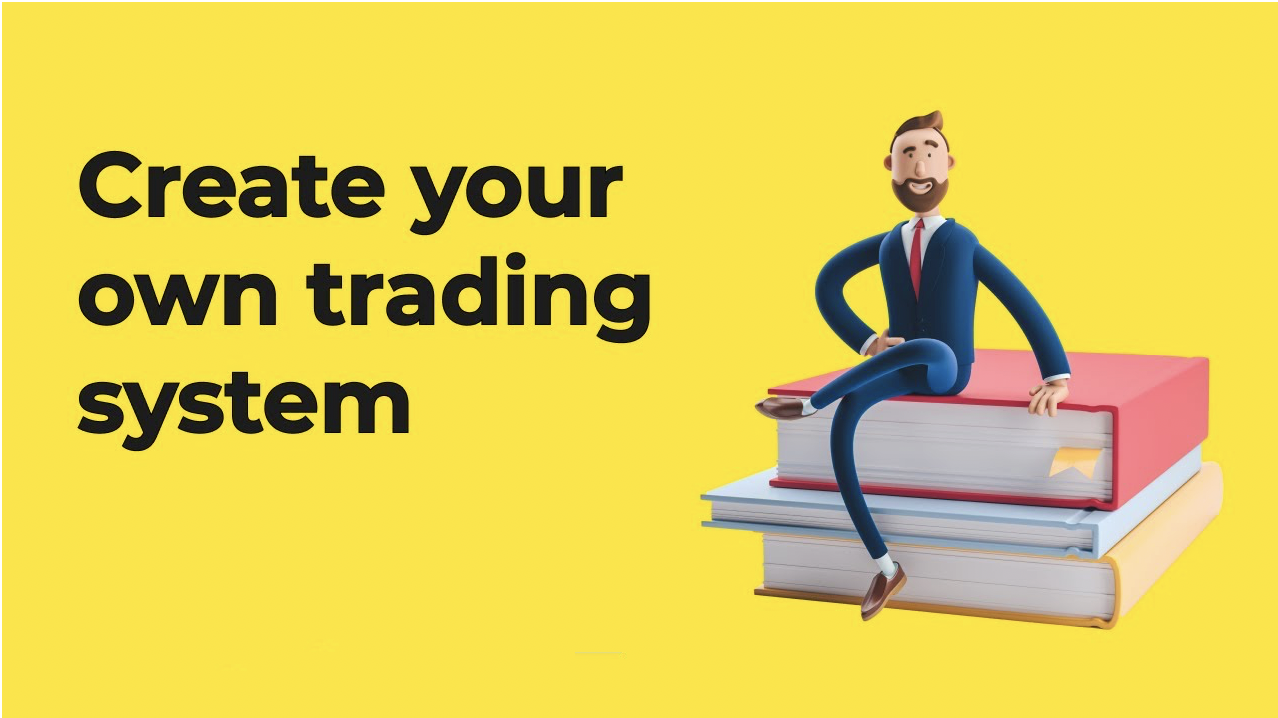
- May 22, 2023
- admin
- 1
This is going to be a series of article focusing on traders who wanted to get started with system based trading. With each chapter, I will explain step by step guidance on building the right trading system. Let’s get started with foundation of Trading System, we really need to understand this before we start building a trading strategy.
People who get started with trading tend to think trading is the easy way to make quick money. But once they gather experience and if they survive long enough they will realize trading is one of the toughest jobs in the world. It’s not as easy as it looks. With ample information and tons of trading strategies out there, still why do many traders struggle to make money out of it?
We always want to be right, in every other profession it is mandatory that we need to be right. If you are a surgeon, you can’t go wrong. You need to be crystal clear with the procedure you are going to perform to the patient. Being wrong in another profession is not acceptable. But Trading is the only profession where you can be wrong and still make money. In Spite of the availability of multiple trading systems readily available, why most people find it really difficult to follow any such system?
The main reason is it doesn’t fit them. In Trading there is nothing as one size fits all. If you have read the book The Market Wizards by Jack Schwager, you will realize that all the traders who were interviewed in that book followed different approaches yet they all were successful traders. the only thing that was common among all of them was, each one of them were able to find a trading system that is suitable for them and all of them followed a trading method which involved “low risk”. All successful traders tend to risk as little as possible which is possible by following the right position sizing rules. That’s the key, they give too much importance to survival.
So how do we find a trading system that is suitable for us? Only when you ask this, the real system trading journey begins. In order to find the suitable trading system, you need to know more about yourself first. Ask yourself what kind of person you are, if you are hyper active then choosing a trading system which is similar to scalping or very short trading is much suitable for you. If you are a very calm person, then you can handle breakout/trend following systems with ease, since your calm mind would help you out to stick to consecutive losing streaks.
We need to try out multiple systems during our initial years with lesser capital, every system trader will jump from one system to another during their initial years mainly because of this reason, they do not have the discipline to stick to one system because it is not suitable to their mind set.
The one who masters the mind, can master the market.
We do not trade based on price action, we trade our beliefs. Once you learn and make up your mind about beliefs we do not change them so easily. Look around your trading friends, the one who talks about Elliott Wave will firmly believe in it, there is no way he is going to move to some other type of trading system. The one who believes in technical analysis will always focus on trading based on chart patterns or indicators and will hardly give any importance to fundamental analysis, even if you say technical analysis doesn’t work, he will tend to prove to you why it works. Because of the strong beliefs we have about the market, we stick to them.
Many beginners find it really difficult when they start with trading because they have to deal with a vast amount of information every day. Compared to 200 years ago vs now, the amount of information humans consume on every day basis has increased multi fold. With the rise in technology this is going to increase exponentially. But our human brain can’t process tons of information on a daily basis, that’s why many discretionary traders burn out easily looking at the screen every day.
Also many traders specifically who deal with option trading speculate too much with buying options. We can relate to their mind set with the person who buys a lottery ticket. Everyone who buys lottery tickets tends to assume they are going to win that million dollars. Since the cost of the ticket is very less, they tend to think that risk reward is in their favour, if they win they make it so big and if they lose, it doesn’t bother at all. But what they miss is, risk reward might be in their favour, but probability is totally against them.
Your chance of winning a lottery ticket is 1 in 13 million. The odds are totally against the buyer. Still people go after it because they assume that 1 person could be them. Same goes with people who deal with option buying blindly, they tend to assume they can capture those OTM options which move from 5Rs. to 500 Rs. during expiry days.
Another mistake many beginners make is giving too much importance to entry price. You can always see in many forums and social media, people tend to ask questions like “is it the right time to enter this stock”? People are always more curious about entries than exits. They spend too much research on finding the right entry point. Why? Because it gives them a sense of control.
The moment they take a position and market moves in their favour after their entry, it gives them a sense of control, they tend to think they are able to crack the market. But remember, it’s the exit that decides your profit not the entry. Professional traders focus too much on the exits, not the entry.
Why did it happen?
Finding the reason behind every move in the market. People love to make stories related to market movement. If the market tanks 1000 points tomorrow, all media news will talk about all negative things that are happening in the world. Next day, if the market rallies 1000 points on the upside, the same media house will talk about how great the world is with tons of positive news.
Degree of freedom:
When people test their trading systems or build their trading system during the initial years, they tend to use a lot of indicators like moving average, super trend etc. The problem with using such parameters is, we tend to play around with it to get the optimal result. Instead of 50–100 moving average crossover, if the optimized results say 42–98 is the best moving average crossover, then we follow that in live markets only to realize later it doesn’t work.
Instead of blindly following a backtest, first understand your trading strategy. The more you understand the concept of your trading strategy, the less you need to rely on historical backtests. Imagine all possible worst case scenarios and ask yourself how your trading system would react to such adverse events, will it survive? How much would it lose? If you can get the answers for all these questions, then you will not end up optimizing your system.
Disprove your system:
Whenever I test a trading system, I always try to prove why it will fail. Once my system survives this stress test then only I will proceed with further testing. If your backtest results give great results you shouldn’t feel happy about it, instead you should worry about it.
GAMBLERS FALLACY:
People who play at casinos have this mindset. Once they see three or four consecutive losses, they tend to assume the next outcome is going to be a winner so they tend to bet big on the next trade. Same with winning streaks, if they see back to back wins, they tend to reduce their bet size on the next outcome as they expect it might be a loser. In trading people tend to follow the same mind set. So they change their position sizing based on the trading outcome. Which is even more dangerous.
So keep these things in mind before you start designing a trading system, in the next article , I will explain how to create a trading system that suits your personality.
If you liked this article, please do share it (Whatsapp, Twitter) with other Traders/Investors.



Sir, where is next series please upload